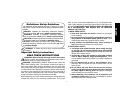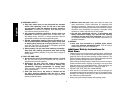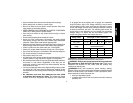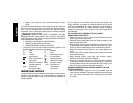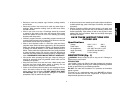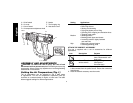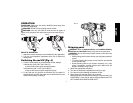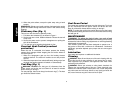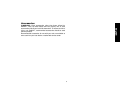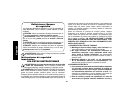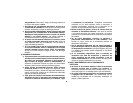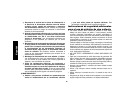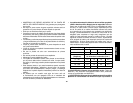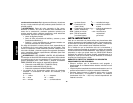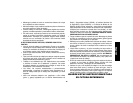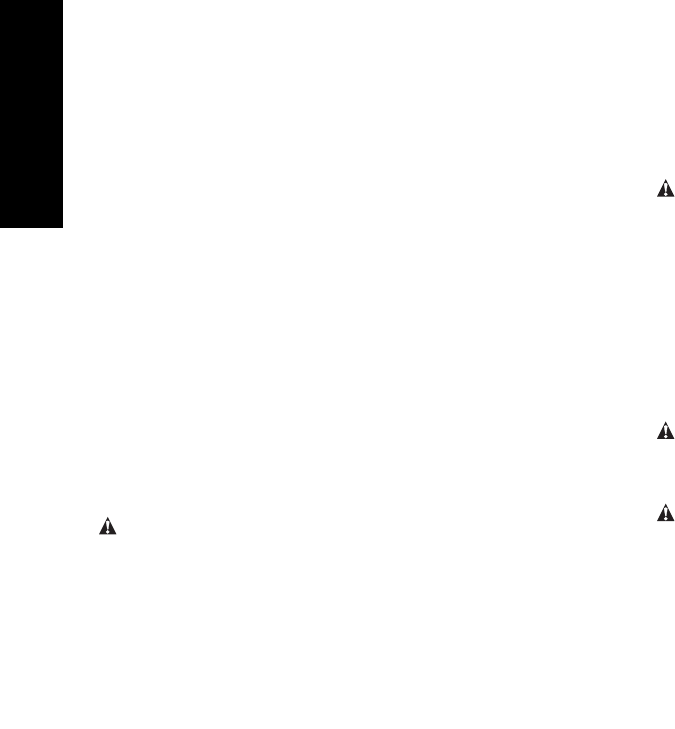
8
English
5. When the paint softens, scrape the paint away using a hand
scraper.
REMEMBER: Splinters and small particles of stripped paint can be
ignited and blown through holes and cracks in the surface being
stripped.
Stationary Use (Fig. 1)
This tool can also be used in stationary mode.
1. Fold down the kickstand (C) as shown in Figure 1.
2. Set the tool onto a level, stable workbench. Ensure the tool will
not tip over.
3. Secure the power cord to prevent entanglement or pulling the
tool off the workbench.
4. Turn the tool on by selecting the desired air flow.
Constant Heat Control (overload
protection)
When the tool is overloaded, this feature protects the heating
element from damage without stopping the tool and/or without a
cool down period
1. When the temperature gets too hot, the heating element
switches itself off. The motor will continue to run and produce
cold air.
2. When the temperature has cooled sufficiently (taking only a few
seconds) the heating element will switch on automatically.
Tool Ring (Fig. 1)
WARNING: ALWAYS turn heat gun off, disconnect from the
power source and let the tool cool down for at least 30 minutes
before moving or storing it.
For easy storage, the tool can hang from the tool ring (F). The heat
gun should be stored indoors.
Cool Down Period
The nozzle and accessory becomes very hot during use. Turn heat
gun off, disconnect from the power source and let the tool cool
down for at least 30 minutes before moving or storing it.
NOTE: To reduce the cooling time, switch the tool on at the lowest
air temperature setting and let it run for a few minutes before turning
the heat gun off.
MAINTENANCE
WARNING: To reduce the risk of injury, turn unit off and
disconnect tool from power source before installing and removing
accessories, before making any adjustments or removing/installing
attachments or accessories.
Your D
EWALT power tool has been designed to operate over a
long period of time with a minimum of maintenance. Continuous
satisfactory operation depends upon proper tool care and regular
cleaning.
Lubrication
Your power tool requires no additional lubrication.
Cleaning
WARNING: Blow dirt and dust out of the main housing with dry
air as often as dirt is seen collecting in and around the air vents.
Wear approved eye protection and approved dust mask when
performing this procedure.
WARNING: Never use solvents or other harsh chemicals for
cleaning the non-metallic parts of the tool. These chemicals may
weaken the materials used in these parts. Use a cloth dampened
only with water and mild soap. Never let any liquid get inside the
tool; never immerse any part of the tool into a liquid.




